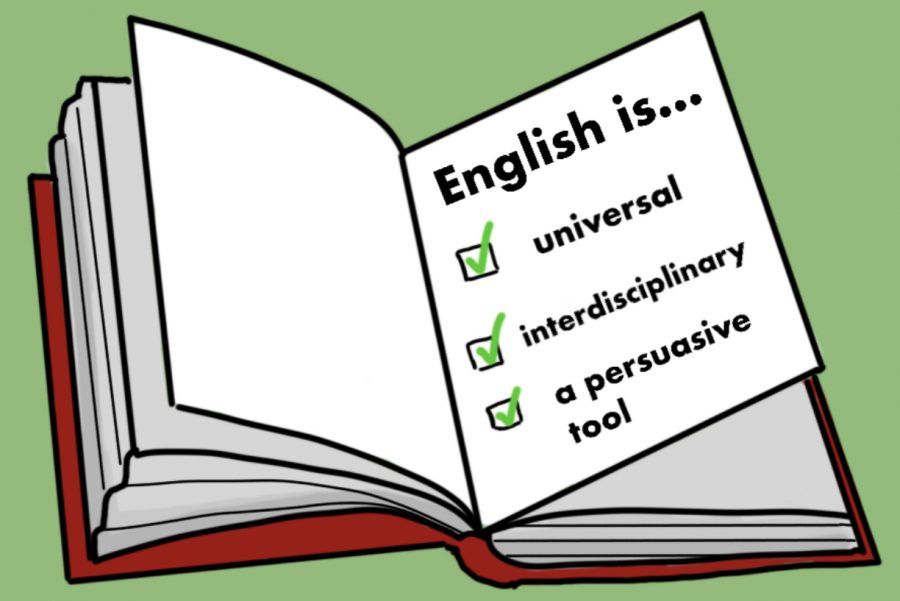Don’t write off English
Students often doubt the need for English class when they have spent their entire life speaking, writing and reading the language. The Sidekick student life editor Anette Varghese thinks English is a requisite part of high school curriculum due to its involvement of critical thinking skills.
September 21, 2021
English is my first language, and the only language where I feel I can comfortably express myself.
The majority of the U.S. population speaks English. According to Language Diversity and English Proficiency in the United States in 2015, approximately nine percent of the American population has limited English proficiency. This means 91 percent of Americans are proficient in English, recognizing the language as America’s “unofficial official language.”
You might ask why, as a Texas public school student, I have to take four years of a language I grew up speaking and understanding. What more could I possibly have to learn about English when I know how to speak, read and understand it?
English, as a language, is interdisciplinary, where skills can be taught and developed, with a broad usage. Fluency in a language directly affects a person’s ability to express their thoughts, feelings or opinions. Being able to articulate those ideas depends on the mastery of specific literary tools taught in school, specifically upper level English classes.
In my English classes, I have learned how to convert my thought process into a well-developed literary analysis, overall improving my English vocabulary skills and developing my critical thinking skills. I have also become more comfortable sharing my own opinions and arguments, undoubtedly increasing my English fluency.
The backbone of debate in particular is persuasion, an ability taught and developed in English through essays, open discussions and logical reasoning.
“When coaching [extemporaneous debate] novices, one of the first things that I tell them is to almost think of speech as an essay [they] might write for English class,” CHS senior debater Natasha Banga said. “Because in reality, having that structure and that level of organization is really important in order to be persuasive.”
A commonly held belief between students and parents is that English as a class is inessential, as most people don’t see literary skills translating directly into money or experience.
“I’m always amazed, I’ll see some students in class writing on a whiteboard,” IB English IV and Honors/GT English II teacher Richard Orlopp said.“They’re going over this equation and they’re just so into it. If I could generate that same enthusiasm for four lines of a poem on the board and dissect them [I would be] thrilled, but I can’t always get there.”
The ability to think for yourself and not be swayed by public opinion is an important tool to crafting your own opinions and beliefs. For example, reading persuasive articles and then being able to take in information from various sources, vet that information and finally distinguish what is reliable, and what is not.
Robert Fulghum published All I Really Need to Know I Learned in Kindergarten, a credo that became a No. 1 New York Times bestseller, in which Fulghum lists lessons normally learned in American kindergarten classrooms, and explains how the world would be improved if adults adhered to the same basic rules as children. Some might apply this same logic to teaching English today, and to that I disagree. The ability to have deeper emotional conversations cannot be taught in kindergarten; this ability is produced from the communication abilities developed inside English classrooms.
Writing a college essay, an article, a dissertation or even a paragraph is nearly impossible without classroom instruction. In order to be able to produce such works, a basis in a formal, classroom, English education is vital. As students move through the education system, their course load becomes more challenging than their younger counterparts. And as these upper level students move into higher education, they rely on basic literary skills that are enhanced during their English classes to aid them where they are now.
Follow Anette (@AnetteVarghese) and @CHSCampusNews












